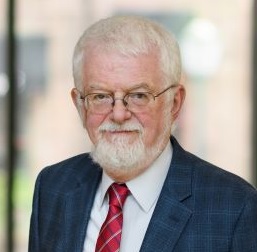Amicus of Legal and Economic Scholars to the 5th Circuit in Tesla v Louisiana Auto Dealers Association
STATEMENT OF AMICI INTEREST
Amici are law professors, economists, or other academics with expertise in competition law and economic regulation. Amici do not work for Tesla, nor have they been compensated in any way for their participation in this brief.[1]
SUMMARY OF ARGUMENT
Amici appear in support of Tesla on two issues with a common thread.[2] The district court’s opinion erred in insulating the actions of the Louisiana legislature and the Louisiana Motor Vehicle Commission (“LMVC”) from antitrust and constitutional review under a flawed framework for scrutinizing state regulations that suppress competition and favor economic special interests.
First, Amici submit that the district court erred in holding that commissioners of the LMVC were protected by Noerr-Pennington immunity when they “agreed with [the Louisiana Automobile Dealers Association (“LADA”)] to use the regulatory power of the Commission to investigate Tesla.” Op. at 27. Although public officials may enjoy Noerr-Pennington immunity when they act in a purely private capacity, a public official who is also a market participant and agrees with others to utilize public power in a manner designed to suppress competition in order to further his own economic interests should not be immunized from antitrust scrutiny. The Noerr-Pennington doctrine protects the rights of citizens to petition the government for redress of grievance. It does not protect governmental officials who conspire to use governmental power to favor their own economic interests. The district court’s approach would create a loophole in the antitrust laws permitting actors wielding state power to avoid responsibility for abuses of official power.
Second, Amici dispute the district court’s finding that Louisiana’s direct sales ban had a rational basis in consumer protection. As Amici explain below, direct sales bans in automotive retailing were historically focused on the exclusive goal of protecting dealers in franchise relationships with manufacturers. Thus, in the cases in which this Court upheld such statutes against constitutional challenge—Ford Motor Co. v. Texas Dep’t of Transp., 264 F.3d 493 (5th Cir. 2001); Int’l Truck & Engine Corp. v. Bray, 372 F.3d 717 (5th Cir. 2004)—the ostensible rational basis of the legislation was the protection of dealers against the superior bargaining power of their franchising manufacturers. But that logic can have no bearing on the application of Louisiana’s 2017, anti-Tesla direct sales prohibition, for the simple reason that Tesla (and other new electric vehicle manufacturers) do not use franchised dealers at all, but sell directly to the consuming public. In such circumstances, dealers are not being protected as franchisees, they are protected from economic competition by companies using a different business model—exactly what this Court held does not count as a rational basis in St. Joseph Abbey v. Castille, 712 F.3d 215 (5th Cir. 2013). Further, efforts to justify direct sales bans as consumer protection rather than dealer protection have no support in economic theory or evidence. Such arguments are mere pretexts for the economic protectionism that this Court has held does not survive equal protection scrutiny
[1] Amici join this brief solely in their individual capacities and express only their individual views. Institutional affiliations are listed for identification purposes only.
[2] Amici take no position on other arguments raised by Tesla’s appeal.



































